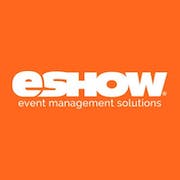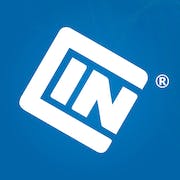In today's fast-paced world, event planners face a challenge to provide seamless experiences for attendees while juggling logistical hurdles. Without the right tools, this monumental task can be incredibly daunting. Fortunately, mobile event apps have revolutionized how event planners approach event management, offering an all-in-one solution for streamlining communication, enhancing attendee engagement, and improving overall event success. However, not all mobile event apps are created equal, and choosing the wrong one could lead to disastrous results. This mobile event apps buyer's guide will provide you with insight into the key features, considerations, and best practices you need to know to make an informed decision that will elevate your event management game.
What is Mobile Event Apps
Mobile Event Apps are software applications designed to help event organizers manage attendee engagement during events such as conferences, trade shows, and exhibitions. These apps can be used to build a custom event schedule, provide information about speakers, send push notifications to attendees, facilitate in-app messaging, and provide exhibitor information. The purpose of these apps is to make event management and participation more streamlined, convenient, and customizable. The use of Mobile Event Apps has become increasingly popular over the years, and for a good reason. Below are the common use cases for Mobile Event Apps: - Creating and managing event schedules and agendas - Providing attendees with speaker information, bios, and session details - Enabling networking and social interaction among attendees - Facilitating better communication between attendees and event organizers - Providing exhibitor directories, maps, and information - Allowing attendees to create personalized event schedules and agendas - Providing interactive maps and floor plans to help navigate the event space - Gathering and analyzing data on attendee engagement and behavior Various companies across different industries can make use of Mobile Event Apps. Trade shows and conferences are the most common places where these apps are used. Additionally, companies that host product launches, recruitment events, and training sessions can also benefit from Mobile Event Apps. In conclusion, Mobile Event Apps are essential tools for modern event management. These apps provide a more organized, interactive, and personalized experience for attendees, while also allowing event organizers to gain valuable insights into attendee behavior and engagement. These factors make Mobile Event Apps indispensable for companies that want to provide their customers with the best possible event experience.
Benefits of Mobile Event Apps
In today's fast-paced business world, companies need to find effective and innovative ways to engage with their audiences. One proven method is through the use of mobile event apps. These apps provide businesses with an efficient way to connect with their attendees, manage their events, and promote their company. Here are some of the main benefits of mobile event apps: - Increased Engagement: Mobile event apps offer businesses a platform to connect with their attendees in real-time, allowing them to engage with their audience before, during, and after the event. This can lead to a higher level of interaction and engagement, which can be further enhanced through push notifications and personalized messaging. - Improved Event Management: Mobile event apps allow businesses to streamline their event management processes by providing tools such as online registration, ticketing, scheduling, and live polling. This can save significant time and resources, making it easier for businesses to manage their events and keep attendees informed and engaged. - Enhanced Attendee Experience: Mobile event apps can significantly improve the attendee experience by providing useful information such as event schedules, speaker bios, maps, and social networking features. Additionally, mobile event apps can offer attendees the ability to participate in live polls, Q&A sessions, and contests, creating a more interactive and engaging experience. - Increased Brand Exposure: Mobile event apps can provide businesses with an additional platform to promote their brand and product offerings. With custom branding options, businesses can showcase their logos and images throughout the app, making it easier to recognize and engage with the brand. - Valuable Data Insights: Mobile event apps can help businesses gain valuable insights into attendee behavior and preferences. By tracking data such as session attendance, speaker ratings, and survey responses, businesses can optimize future events and marketing strategies. Overall, mobile event apps are an essential tool for businesses looking to enhance their events and connect with their audiences. With increased engagement, improved event management, enhanced attendee experience, increased brand exposure, and valuable data insights, it's no surprise that more and more companies are turning to mobile event apps to take their events to the next level.
Features of Mobile Event Apps
Mobile event apps have revolutionized the way we attend and organize events. They offer many features and benefits to both event planners and attendees, making the event experience more interactive, personalized, and engaging. In this section, we will highlight and list ten common features of mobile event apps. 1. Event schedule – One of the most common features of mobile event apps is the event schedule. This feature allows attendees to view the schedule of events, including the date, time, location, and description of each event. Attendees can also create a personalized schedule, set reminders, and get alerts for upcoming events. 2. Networking – Networking is an integral part of any event, and mobile event apps make it easier for attendees to connect and interact with each other. Features such as attendee profiles, messaging, and matchmaking algorithms allow attendees to find and connect with like-minded individuals or potential business partners. 3. Live polling – Mobile event apps also offer live polling, which allows event organizers to gather feedback from attendees in real-time. This feature can be used to gather opinions on speakers, sessions, or content, and helps organizers to adjust the event to suit attendee needs. 4. Social sharing – In this social media age, mobile event apps allow attendees to share their experience on social media platforms, such as Twitter or LinkedIn. This feature helps to promote the event, increase engagement, and reach a wider audience. 5. QR code scanning – Mobile event apps can also include QR code scanning, which allows attendees to quickly check-in to the event or access event information. This feature eliminates the need for paper tickets, reduces wait times, and enhances the attendee experience. 6. Push notifications – Push notifications are another common feature of mobile event apps, which can be used to notify attendees of important updates or changes to the schedule. This feature keeps attendees informed and engaged throughout the event. 7. Gamification – Gamification is an innovative feature that makes the event experience more fun and engaging. It involves integrating game-like elements into the event, such as challenges, quizzes, or scavenger hunts, which attendees can participate in for rewards or prizes. 8. Beacon technology – Beacon technology is a newer feature of mobile event apps that uses Bluetooth to send location-based notifications to attendees. For example, attendees can receive personalized greetings or offers when they enter a specific area or exhibit. 9. Analytics – Mobile event apps also offer detailed analytics that event organizers can use to track attendee engagement and behavior. This data can be used to improve the event experience or for post-event analysis and reporting. 10. Feedback and surveys – Finally, mobile event apps offer feedback and survey tools that organizers can use to gather feedback from attendees post-event. This feature allows organizers to understand attendee satisfaction and make improvements for future events. In conclusion, mobile event apps offer many features and benefits that enhance the event experience for both organizers and attendees. The above-listed features are commonly found in the majority of mobile event apps, providing a comprehensive range of tools for event planners.
Considerations of Mobile Event Apps
Mobile event apps are becoming increasingly popular among businesses which are eager to engage their customers in a more dynamic and personalized manner. However, selecting the right mobile event app can be a daunting task, as there are countless options available in the market. In this article, we will outline the key factors that businesses should consider when purchasing mobile event apps. First and foremost, it is essential to identify your business goals and the objectives you wish to achieve from using a mobile event app. Whether it is to increase engagement, boost customer loyalty, or maximize ROI, your goals will shape your app selection. Secondly, look for mobile event apps that offer a user-friendly interface and are compatible with different operating systems (iOS and Android). A user-friendly interface will make it easier for attendees to navigate the app and access all necessary information. Ensure that the app is responsive and optimized for different screen sizes. Thirdly, consider the customization options available on the app. You want the event app to be a reflection of your brand, not just another generic application. Check whether the app allows you to create a unique color scheme and add your corporate logo. Fourthly, look for features that enable real-time communication, networking, and scheduling. Features like a chatbot or AI-powered assistance will help attendees locate information, receive assistance, or make arrangements with fellow attendees. Integration with social media platforms is also an important consideration, as it will allow attendees to share their experiences and insights on your event. Fifthly, look for feedback and analytics features that will provide insights on how attendees interacted with your event app. This includes factors like session attendance, location tracking, and user engagement. This information will help you to determine future event plans and identify areas for improvement. Finally, consider the pricing model and the support services provided by the app provider. Make sure the pricing model is transparent and aligns with your budget. You might prefer to pay for the app upfront, or, alternatively, opt for a subscription-based service. Support services should also be reliable and responsive, as you will need assistance during the setup and live event phases. In conclusion, selecting the right mobile event app requires careful consideration of your goals, features, pricing, and ongoing support. By keeping these key factors in mind, you can make an informed decision that will benefit both your event and your attendees.
Software Trends for Mobile Event Apps
Mobile event apps have become essential tools for event organizers in recent years, and their importance will only grow in 2023 and beyond. With advancements in mobile technology, event apps are being designed to offer unique features and functionalities that enhance the attendee experience and improve event planning and management. First and foremost, mobile event apps are becoming more intelligent and personalized. They now use artificial intelligence to gather valuable attendee data and provide tailored content and recommendations. For instance, attendees can receive personalized schedules based on their interests, social recommendations for networking, and targeted promotions for sponsors and exhibitors. Another trend is the adoption of hybrid event features. With a mix of virtual and in-person elements, event apps are becoming more versatile and accessible. This feature not only makes events more accessible, but it also allows attendees to engage with event content before and after the live event. Event apps will also be leveraged for sustainability and social responsibility efforts. They are being used to reduce paper usage, minimize carbon footprints, and promote sustainable practices. In fact, event apps equipped with virtual and augmented reality will become prevalent in order to bridge the gap between in-person experiences and reduce the need to travel. Lastly, the use of integrations will be more vital than ever. Organizers will seek to connect their event apps with other tools, such as project management software, CRMs, and marketing automation platforms, to increase their efficiency and streamline their workflow. In conclusion, mobile event apps are on the rise and will continue to be a critical tool in event planning and management. Their use will not only enhance the attendee experience but also contribute to sustainability efforts and streamline workflow.










